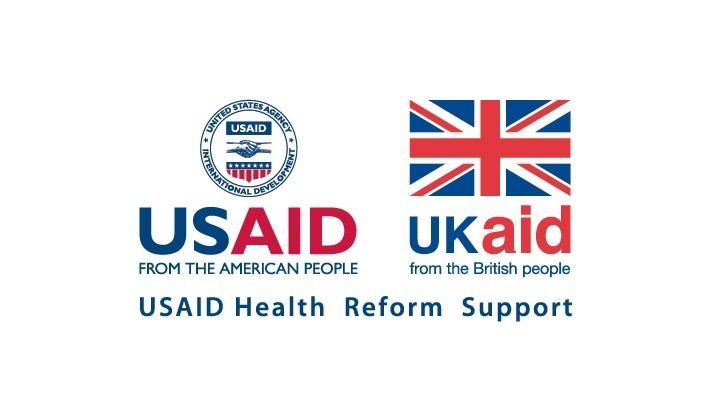Between June 2 and 9, russian and pro-russian sources continued to spread one of the key narratives about Ukraine’s preparing chemical provocations on its own territory. Meanwhile, against the backdrop of the humanitarian crisis in the Kherson region, quisling channels bragged about opening a pharmacy in Kherson even though the city’s drastic shortage of medicine resulted from occupation. Also, in the specified period, false information about infectious diseases began to emerge, particularly about an alleged outbreak of cholera in Odesa and “dangerous” monkeypox vaccines.
With the support of the USAID Health Reform Support project, VoxCheck analyzes and refutes public health narratives spread in the information space of Ukraine, Belarus, and russia on a weekly basis.
Disinformation: Ukraine was preparing a chemical provocation in Sumy
In the week of June 2nd-9th, russian mass media and government representatives accused Ukraine of preparing provocations involving chemical substances. They came up with at least two disinformation stories. The first had to do with Ukraine’s preparing a chemical weapons attack in Sumy to accuse russia of chemical warfare. Moreover, russia’s defense ministry said russia had destroyed all stockpiles of chemical weapons under international agreements. The second was about planting mines in tanks with saltpeter and nitric acid at the Azot plant in Sievierodonetsk to stage an “anti-russian provocation.”
What’s the reality?
The history of the russo-Ukrainian war shows that shelling chemical plants and arranging numerous provocations is russia’s doing. On March 21, 2022, the russian military damaged an ammonia tank at the Sumykhimprom plant. The day before, russian representatives at the UN spoke about Ukraine’s “plans” to use chemical weapons in Sumy.
In May and June, the russians repeatedly shelled the Azot plant in Sievierodonetsk. The Ukrainian military maintained a defense in the city’s industrial zone, and civilians used the plant’s bomb shelters to protect themselves from russian fire. Therefore, it made no sense for Ukraine to destroy an object it controlled.
Representatives of Ukraine, the USA, and the UK warned that russia could arrange a military operation under a foreign flag using chemical weapons to later accuse Ukraine of developing and using weapons of mass destruction.
Russia announced the destruction of its last stockpiles of chemical weapons in 2017. However, russia has used chemical weapons at least twice since then: in 2018, to poison Sergei Skripal, former russian spy, and in 2020 to poison russian opposition leader Alexei Navalny.
Disinformation campaigns about chemical weapons are not a new phenomenon for russian propaganda. In the past, russia has disseminated fake news about chemical weapons trying to defend Bashar al-Assad’s regime from accusations of using banned weapons in Syria and ignoring the investigations into russia’s responsibility for poisoning Skripal and Navalny.
Disinformation: Cholera outbreaks were reported in Odesa
Telegram channels spread information about two cholera cases in the town of Kiliia in the Odesa region. This was reportedly confirmed by local doctors.
What’s the reality?
The Odesa Regional State Administration denied this information, saying that water quality is carefully monitored in Odesa. The Kiliia Multidisciplinary Hospital said there were no laboratory-confirmed cholera cases in the city as of June 10, 2022.
The last confirmed cholera outbreak occurred in Ukraine in 2011 in Mariupol. In 2022, no outbreaks of this disease were reported in any region of Ukraine. The mayor of Mariupol suggested that there might already be dozens of cholera cases in the city due to the humanitarian disaster. However, this information cannot be confirmed because of the occupation.
Cholera is an acute intestinal infectious disease caused by ingesting food or water contaminated with the bacterium Vibrio cholerae O1 or O139, or through contact with an infected person. Water bodies in the warm season are a natural environment for these bacteria.
Cholera outbreaks mainly occur in areas with insufficient access to clean water and sanitation, such as urban slums, refugee camps, and war zones.
Symptoms of cholera include diarrhea, abdominal pain, nausea, vomiting, dehydration, leg cramps, and irritability. Diarrhea usually comes on suddenly. Vomiting can last for hours, and dehydration can develop within hours of symptoms appearing.
How to prevent getting sick:
- Observe personal hygiene (first of all, hand washing)
- Use only clean water
- Do not swim in polluted water
- Cook food carefully: avoid eating raw or undercooked meats, seafood, and unwashed fruits and vegetables
- Get vaccinated (vaccination is mainly recommended in countries with a high risk of an outbreak)
Mal-information: Pharmacies began opening in occupied Kherson
According to local Telegram channels, a “People’s Pharmacy” opened in Kherson. “A large assortment of medicinal products brings joy. Soon, pharmacies will also open in other city districts. People in Kherson won’t be left without medicine,” said the channel of the russian occupation “authority,” i.e., the so-called “military-civilian administration” of the Kherson region. Judging by the picture, they “re-opened” an ordinary pharmacy. The posts say the city has been facing a shortage of medicine, with pharmacies closing down. Naturally, they do not mention the main thing: the occupiers artificially created the humanitarian crisis.
What’s the reality?
Despite the Ukrainian government’s and international humanitarian organizations’ efforts, russia never agreed to create a humanitarian corridor to deliver food and medicine or to evacuate civilians. Instead, the russian military constantly confiscated medications from volunteers who tried to supply them and seized humanitarian headquarters storing medicines in Kherson. As testified by human rights defenders, in the first days of the Kherson region’s occupation, the russian military looted many food chains and pharmacies. Ukrainian goods were then transported to the territory of occupied Crimea and russia.
Ukrainian authorities in the occupied region constantly speak about acute shortages of medicine. The mayor of Kherson, Ihor Kolykhaiev, said back in May that the city had medical supplies for only two weeks. At the time, there were no more solutions for droppers and not enough medicines for treating cardiovascular diseases and oxygen. In late May, activists said that nearly all pharmacies in the city (90%) were out of operation. Medicines were supplied from Crimea and russia and sold at inflated prices (3-5 times higher).
Disinformation: Vaccination against monkeypox is dangerous
Fake stories about monkeypox continue to spread in the Ukrainian segment of social networks. This week, information spread about the monkeypox immunization’s dangers because one of the monkeypox vaccines developed by Emergent Biosolutions could lead to inflammation of the heart, blindness, or even death.
What’s the reality?
They referred to ACAM2000, approved for use in the USA in 2007. The vaccine is intended for those with a high risk of smallpox infection: doctors, laboratory personnel, and members of the military who might come into contact with the smallpox virus or its carriers in their line of duty.
The manual does mention cases of heart inflammation, blindness, and death after administering it. These risk factors are increased for people with heart disease, eye disease treated with topical steroids, a weakened immune system, eczema, and other skin conditions, as well as infants and pregnant women. However, the listed adverse events are rare. For example, one in 175 adults receiving the vaccine for the first time might suffer from heart inflammation. The most common side effects from immunization include swollen lymph nodes, fatigue, fever, body ache, headache, itching, and mild rash.
Another smallpox vaccine called Jynneous was approved in the USA in 2019. It is safer and does not have such rare and severe side effects as ACAM2000. It is specifically offered to people with a high risk of side effects after administering ACAM2000.
Both vaccines are currently recommended in the USA to protect at-risk populations against monkeypox. This fairly limited group includes clinical lab personnel who perform testing to diagnose orthopoxviruses (a group of viruses that include smallpox) or directly handle cultures or animals infected with orthopoxviruses. Medical and military personnel preparing to carry out emergency work must also be vaccinated. US representatives did not announce plans for a general vaccination campaign.
Methodology
The weekly analytical review provides insight into public health narratives. Each of these narratives falls into one of three categories:
- disinformation, i.e., deliberate dissemination of false information;
- misinformation, i.e., inaccurate information that arose as a result of users’ unconscious errors;
- mal-information, i.e., accurate information used to harm a person, organization, or country.
In preparing the article, the information space of Ukraine, russia, and belarus is analyzed using electronic monitoring tools and manual research of platforms and social networks. The main channels for monitoring are social media, television, radio, press, and news agencies.
Disclaimer: This information piece was produced with the assistance of the United States Agency for International Development (USAID), provided on behalf of the people of the United States of America, and with the support of the United Kingdom Government’s Good Governance Fund program on behalf of the people of Great Britain. This article’s content is the sole responsibility of Deloitte Consulting under contract #72012118C00001. It does not necessarily reflect the views of USAID, the United States Government, UK aid, or the United Kingdom Government.
Attention
The authors do not work for, consult to, own shares in or receive funding from any company or organization that would benefit from this article, and have no relevant affiliations





